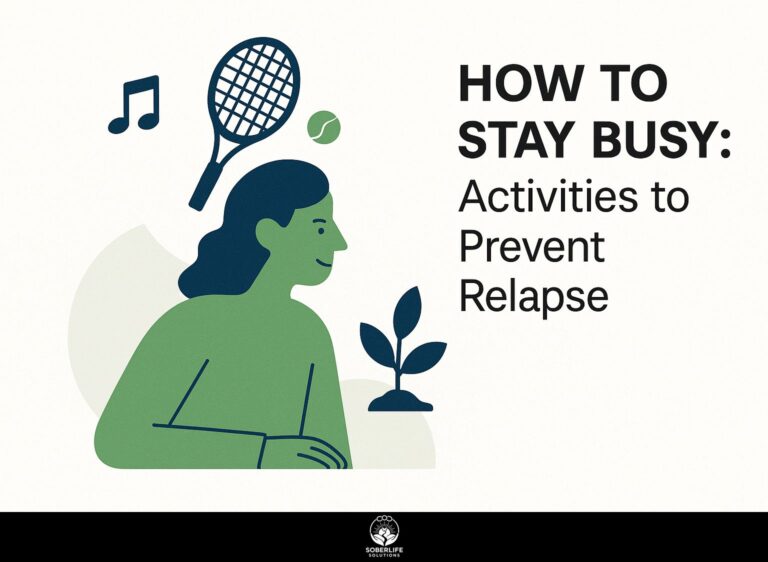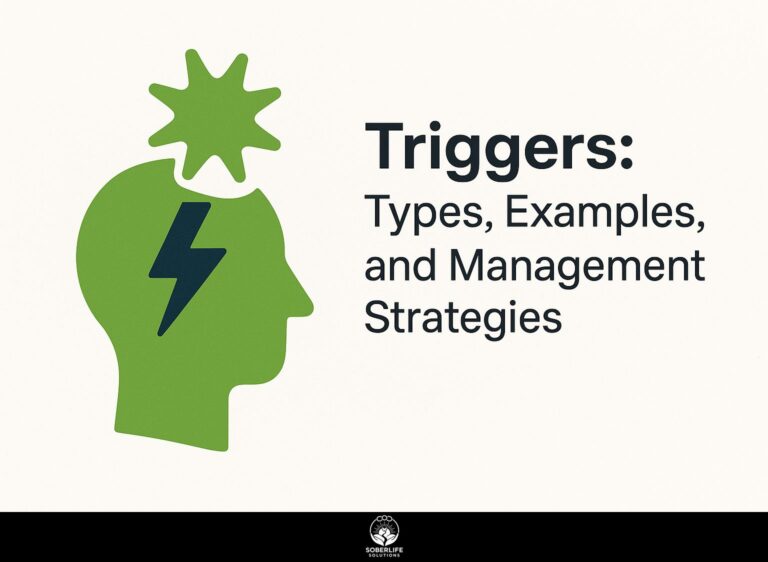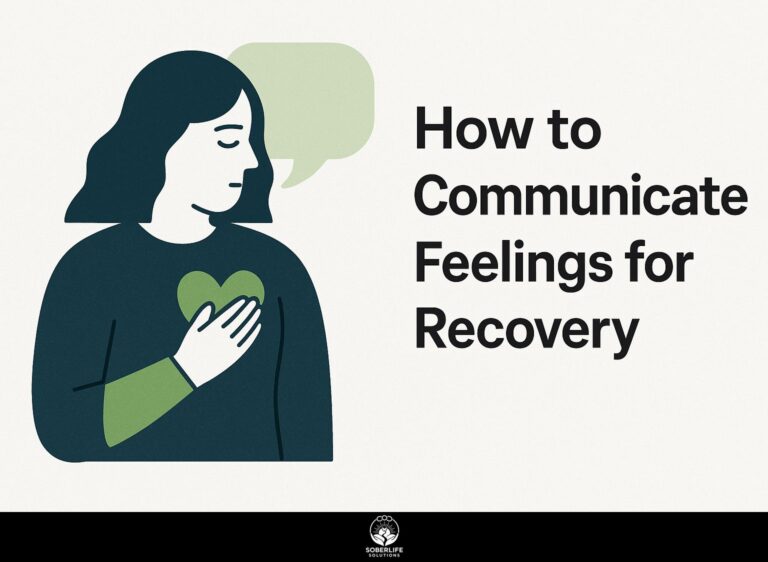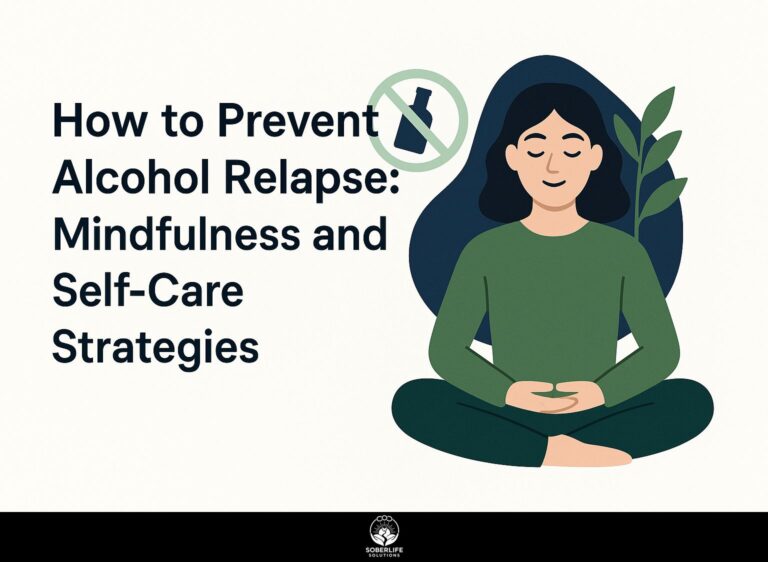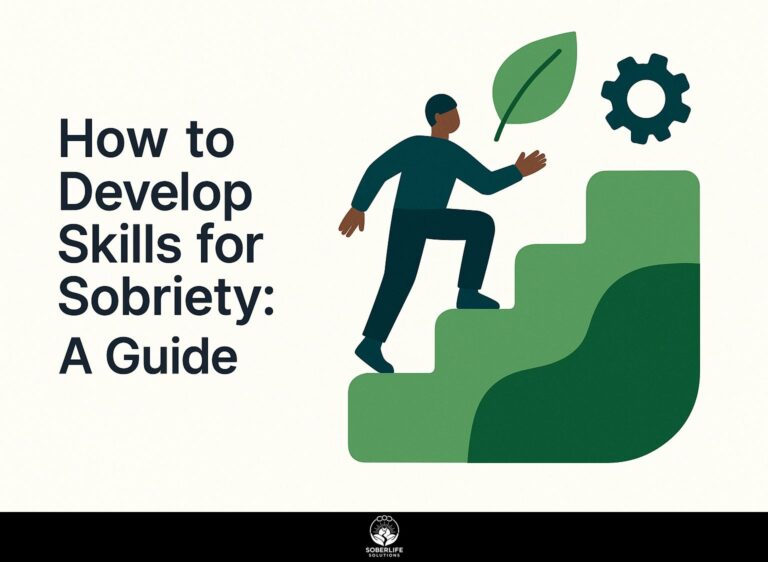How to Use Gratitude Lists to Maintain Sobriety
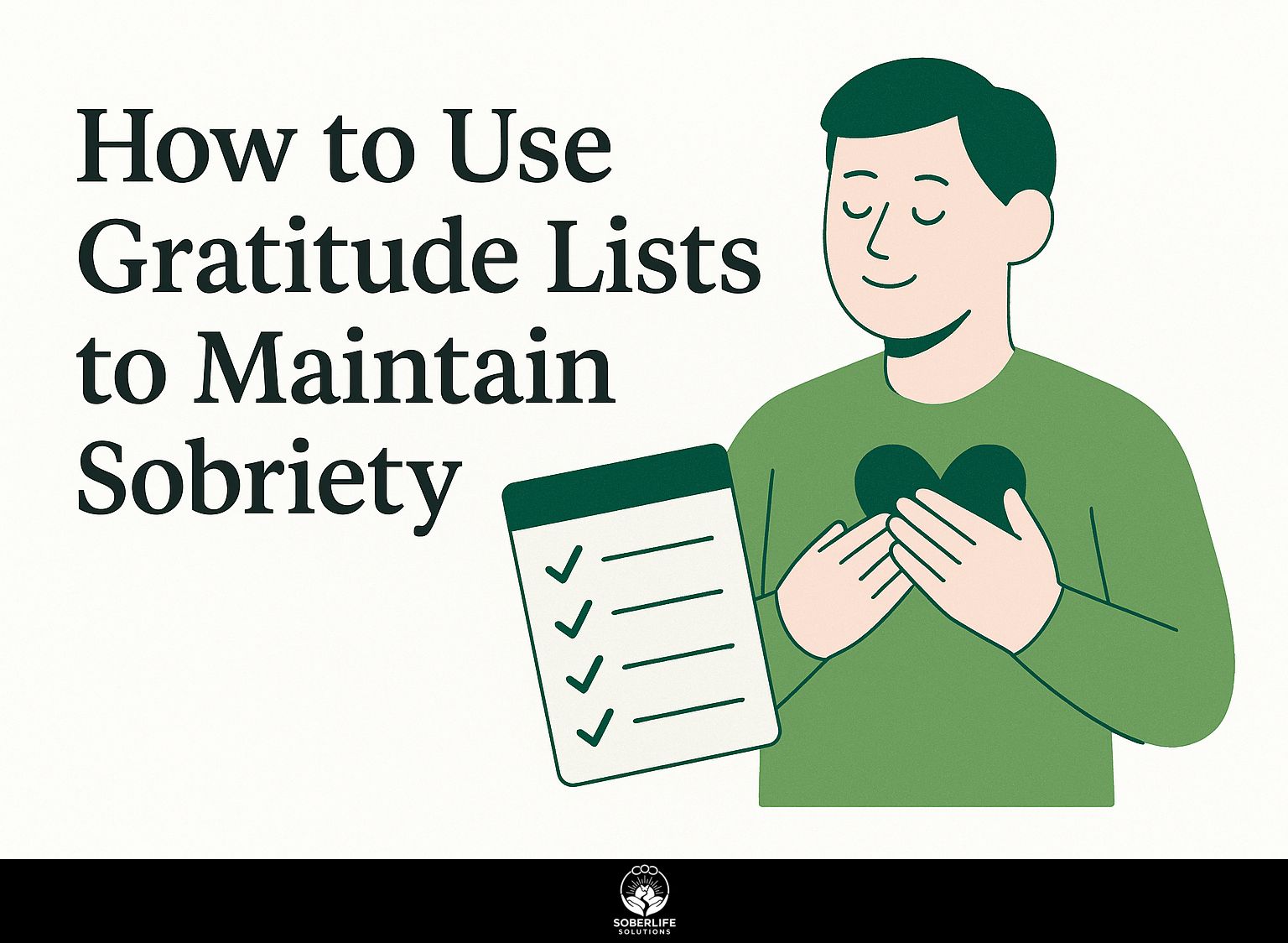
Using gratitude can greatly improve your recovery process. By writing daily gratitude lists, you can improve your mental health and emotional well-being, helping you stay strong against the struggles of sobriety. This article explains how gratitude practices help your recovery and build a positive mindset, making it easier to handle life’s ups and downs. Join us as we look at how gratitude can change your path to sobriety.
Key Takeaways:
The Importance of Sobriety
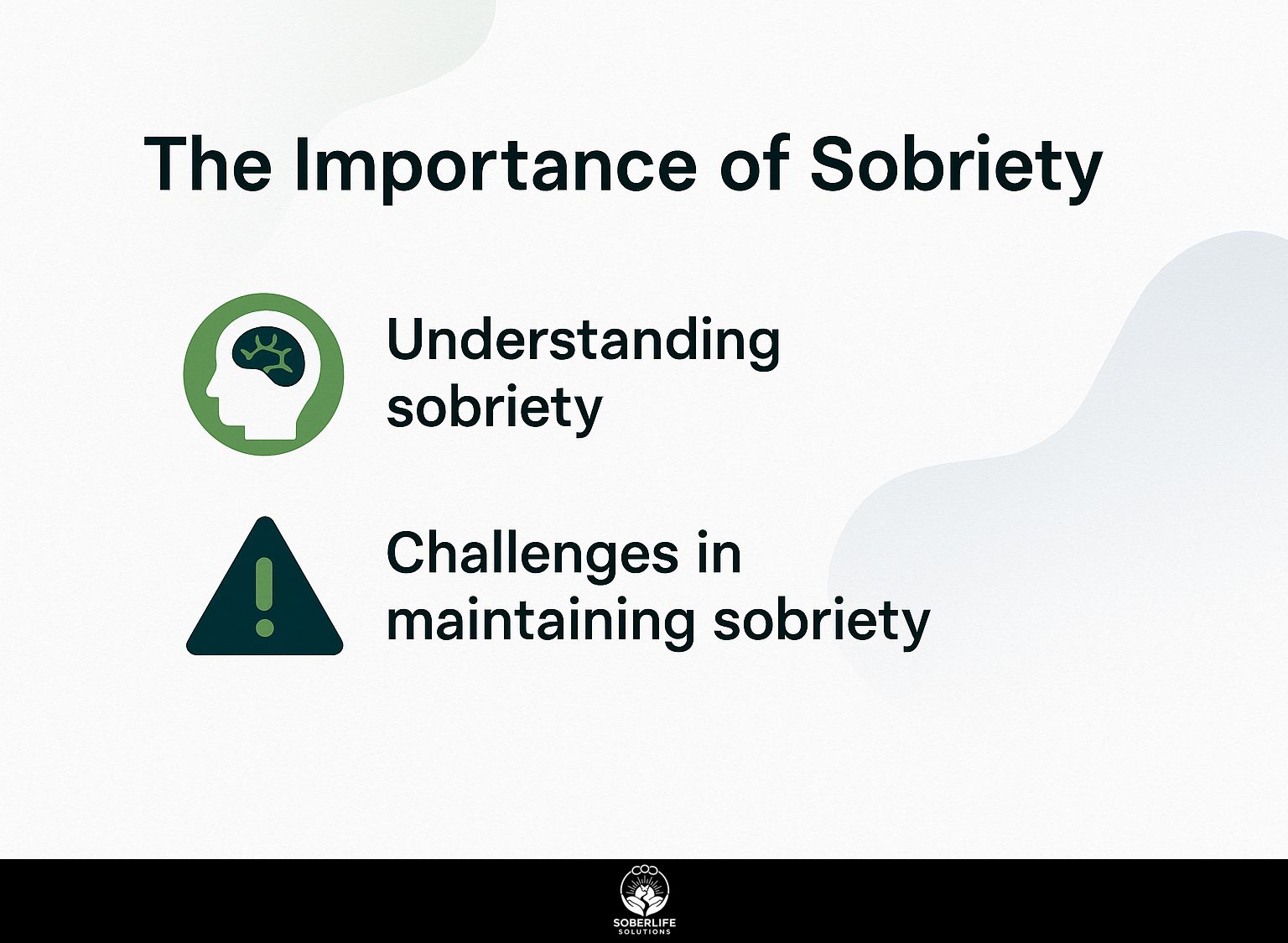
Remaining sober is very important for healing and has a big impact on the mental and emotional well-being of those facing substance use issues. This commitment to sobriety is crucial, as it significantly improves mental health, providing clarity and stability in the recovery journey. For more insights, see our detailed guide on how sobriety improves mental health.
Understanding Sobriety
Sobriety means seeing how both mental and social factors are important to living without drugs.
Achieving and maintaining sobriety requires emotional regulation and community support. Practices like meditation and journaling can greatly improve self-awareness and help people manage cravings successfully.
Techniques like deep breathing and grounding exercises serve as immediate tools to reduce anxiety. Connecting with sober communities through group therapy or support networks can provide accountability and encouragement, as highlighted in research by Nature exploring support provision for recovery.
Using apps like Sober Grid or I Am Sober can help provide daily motivation and keep track of sobriety goals. By using these strategies, people can build a strong support system that helps maintain long-term sobriety.
Challenges in Maintaining Sobriety
Maintaining sobriety presents various challenges such as cravings, social pressures, and emotional triggers that require effective coping skills and community support.
To handle these difficulties effectively, think about joining a local support group, like Alcoholics Anonymous (AA). These groups offer a safe space to share experiences and learn from others.
Try mindfulness methods such as meditation or yoga to help manage emotions and lower anxiety. Journaling can also be a powerful tool, allowing you to express thoughts and feelings, helping to identify patterns in triggers.
Spending time with sober friends can strengthen your support system, helping you stay responsible and motivated during difficult times. If you’re interested in learning more about effective sober support systems, check out this hidden gem on Sober Life Solutions.
How Gratitude Lists Support Sobriety
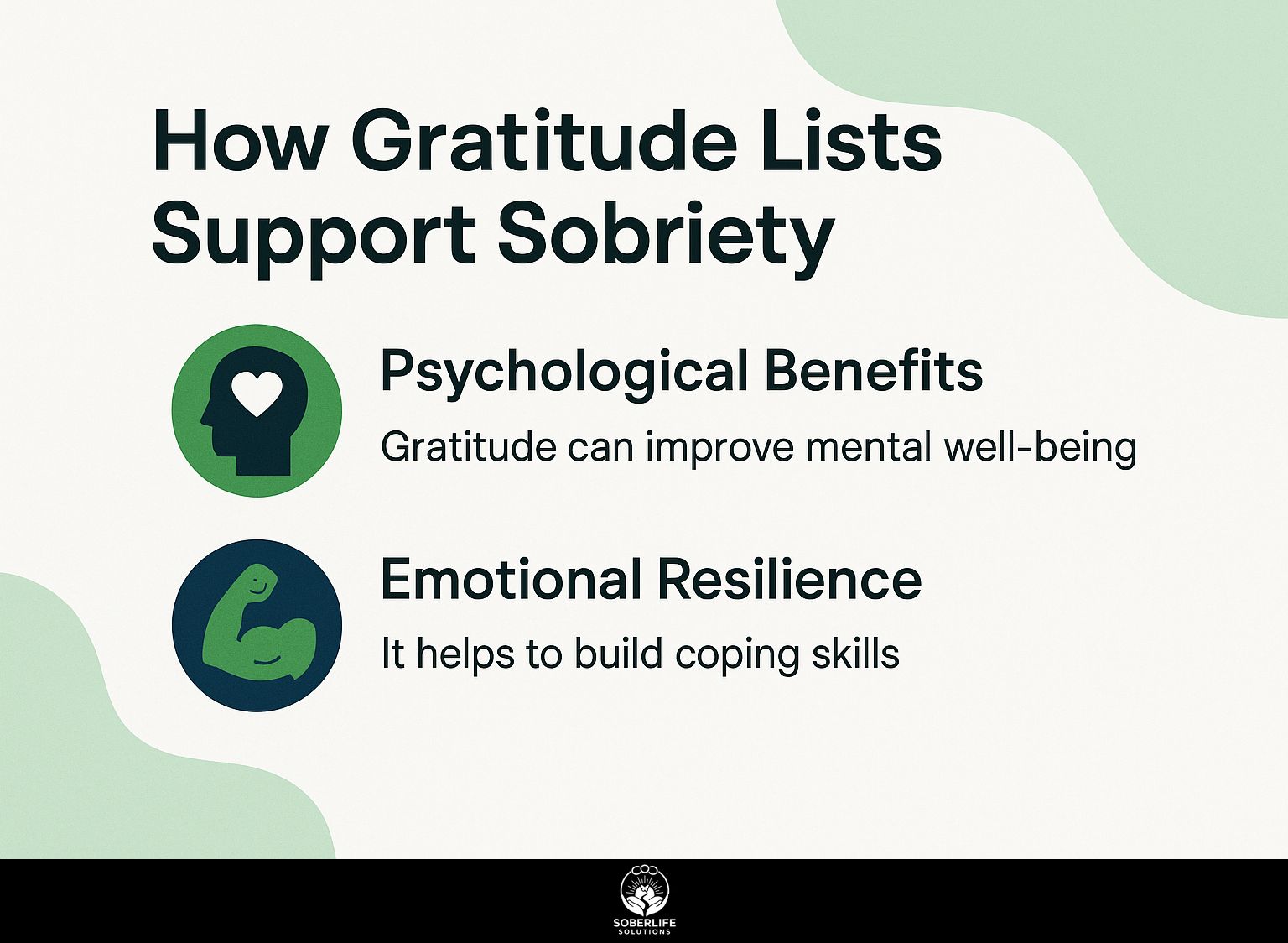
Writing down what you’re grateful for can help you stay sober. It promotes a positive mindset and reduces anxiety, which is good for mental health. This practice is similar to journaling in your sobriety journey, as both methods can enhance self-awareness and emotional well-being.
Psychological Benefits
The psychological benefits of gratitude lists include better control over emotions and a move towards positive thinking, which are important for those in recovery.
Using gratitude exercises can greatly increase these effects. For example, try the ‘Three Good Things’ exercise: each evening, jot down three positive experiences from your day, no matter how small. This moves attention away from negativity and encourages feelings of success.
Consider keeping a gratitude journal; write daily entries that reflect on what you’re thankful for, which strengthens emotional resilience over time. According to UCLA Health, regularly practicing gratitude can significantly enhance emotional well-being and resilience.
Tools like the ‘Five Minute Journal’ can help you build this habit by encouraging regular gratitude reflection.
Emotional Resilience
Gratitude lists strengthen emotional resilience by helping people handle difficulties and build important coping skills necessary for staying sober.
Many people in recovery say that being thankful daily helps them think more positively.
For example, Sarah, a 30-year-old recovering addict, explains how writing down three things she appreciates each morning changed her outlook, helping her manage cravings. Similarly, John, who battled alcoholism, emphasizes the importance of reflecting on positive experiences, as it helps shift focus away from negative triggers.
By regularly recognizing what they value, these individuals develop emotional resilience and create a helpful system to handle stress well.
Creating Your Gratitude List
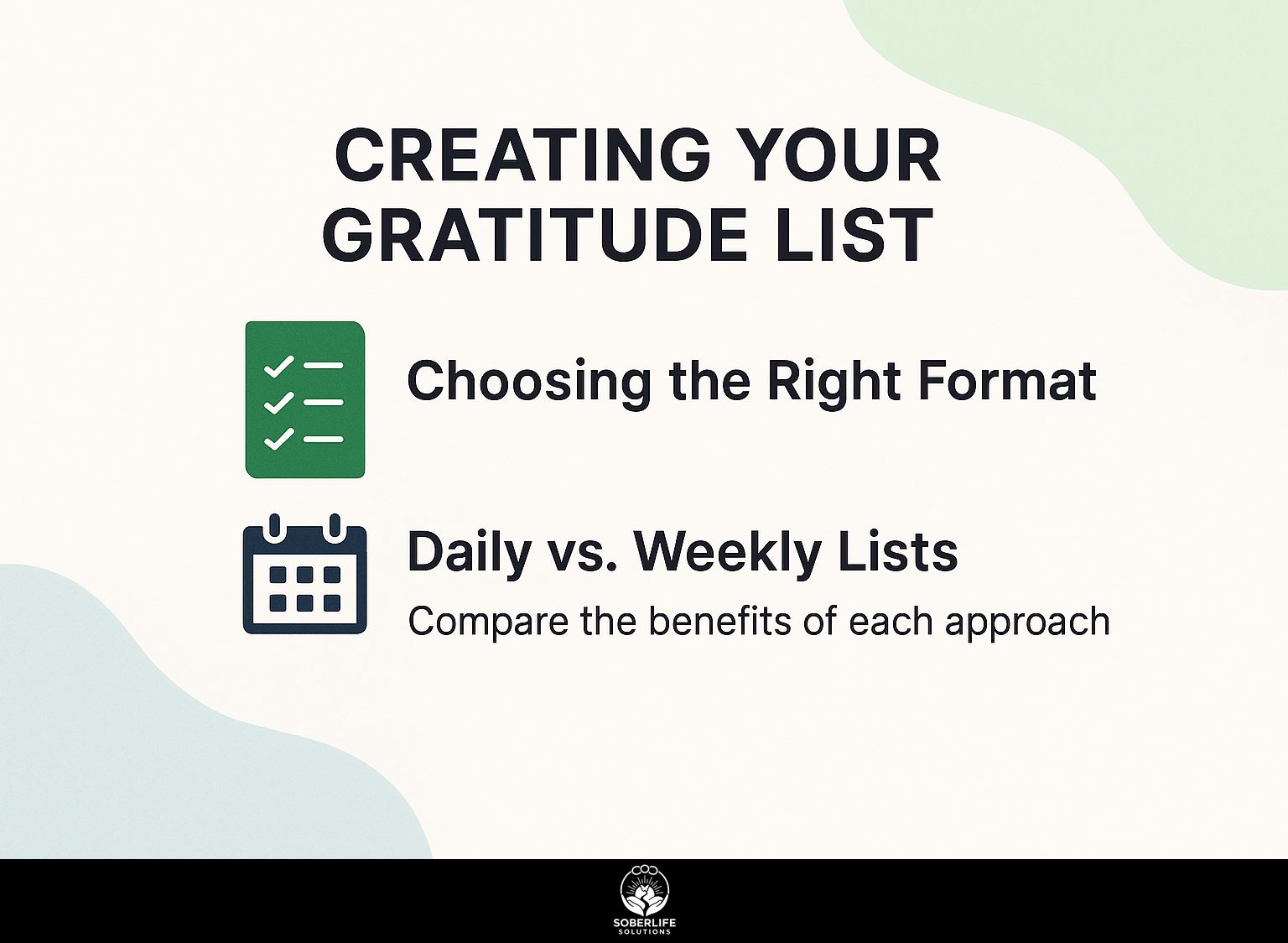
Creating a gratitude list requires careful thinking. It helps people focus on good things every day and boosts their emotional well-being. Additionally, cultivating gratitude is a vital aspect of developing healthy habits, which can be supported by following specific recovery steps. Learn more about creating habits that enhance recovery.
Choosing the Right Format
Choosing the right format for your gratitude list-whether digital using apps like Day One or traditional pen-and-paper-can influence its effectiveness.
Research indicates that writing lists by hand creates a stronger emotional bond. Writing in a well-made journal can make your experience better than typing on a computer.
However, apps like Gratitude Journal let you add photos and set alerts, making it more appealing to people who use technology.
To see what works best for you, try switching between both methods for a month. Observe which format encourages more regular thinking and positive feelings in your daily life. For context, Psychology Today explores how writing by hand can boost brain connectivity, adding another layer to the debate of digital versus traditional methods.
Daily vs. Weekly Lists
Determining whether to keep daily or weekly gratitude lists depends on personal preferences and goals for emotional regulation.
Writing down things you are thankful for each day can help you be more aware of the present and improve your mood daily by keeping your thoughts on positive moments.
Writing down three things you were thankful for each day before going to sleep can help you feel more satisfied. Conversely, weekly lists allow for deeper reflection, enabling you to analyze broader themes in your life.
You might use a journal app like Day One to compile these thoughts on Sundays, highlighting recurring patterns of gratitude. In the end, pick how often you need to listen to improve your mood and encourage good thoughts.
Incorporating Gratitude Lists into Daily Routine
Adding gratitude lists to your day-to-day activities can greatly improve your mood and help you feel better emotionally.
To integrate gratitude lists effectively, try dedicating just five minutes each morning. Begin with a notebook or a notes app such as Evernote.
Simply jot down three things you’re grateful for, ranging from simple joys like your morning coffee to significant milestones. You might find it helpful to link this practice to an existing morning routine, such as right after your first cup or following a short meditation.
Over time, you might feel happier and see things in a more positive way.
Sharing Gratitude Lists with Support Groups
Sharing gratitude lists with support groups helps build community involvement and improves relationships, which are important for recovery.
To maximize the impact of these lists, encourage members to share them during meetings. Here are some practical tips:
- Pick a specific time to share so everyone can prepare.
- Second, create an inviting space where people listen closely-this makes everyone feel valued when they speak.
- Include a feedback process; after sharing, ask others to share what they found meaningful.
This method increases involvement and strengthens emotional bonds, which is important for building a supportive community needed for recovery. For related personal experiences in fostering supportive systems, see also: My sober support system story.
Evaluating the Impact of Gratitude Lists
Studying how gratitude lists influence personal growth and emotional health can show how helpful they are.
To begin tracking these changes, consider using a simple journal, either physical or digital.
Each day, write down three things you are grateful for, noting how you feel before and after this practice.
Over a month, review your entries to identify patterns in your mood and anxiety levels.
You can use apps like Daylio or Reflectly to quickly record your mood with gratitude notes, giving you a visual overview of your emotions over time.
This organized method can strengthen the positive feelings of gratitude as time goes on.
Frequently Asked Questions
What is a gratitude list?
A gratitude list is a tool used in recovery to help maintain sobriety. It is a list of things that a person is grateful for, which can help shift their mindset to a more positive and appreciative one.
How do I start using a gratitude list to maintain my sobriety?
Start by setting aside a few minutes each day to write down things that you are grateful for. This can be anything from family and friends to small moments that brought you joy. It’s important to be consistent and make it a daily habit.
Why is using a gratitude list important for sobriety?
Maintaining sobriety can be challenging, and it’s easy to get caught up in negative thoughts. By thinking about what we appreciate, we can change how we view things and gain more energy and drive to remain sober.
What are the benefits of using a gratitude list for sobriety?
Using a gratitude list can help improve overall mental health, increase feelings of positivity and happiness, and decrease stress and anxiety. It can also remind us why we choose sobriety and help us feel purposeful and thankful for our recovery process.
Can I use a gratitude list in addition to other recovery tools?
Absolutely! Gratitude lists can be used in conjunction with other recovery tools, such as therapy, support groups, and self-care practices. This tool can be useful for people just starting recovery, as it offers an easy way to stay present and appreciate daily life.
How can you effectively use a gratitude list to support sobriety?
Choose a time of day that works best for you to write your gratitude list, whether it’s in the morning, before bed, or during a break in your day. Also, try to be as specific as possible when writing your list, as this can help deepen the feelings of gratitude. Lastly, don’t be too hard on yourself if you miss a day or if your list looks different each day. The important thing is to keep practicing gratitude and celebrating your progress in recovery.

